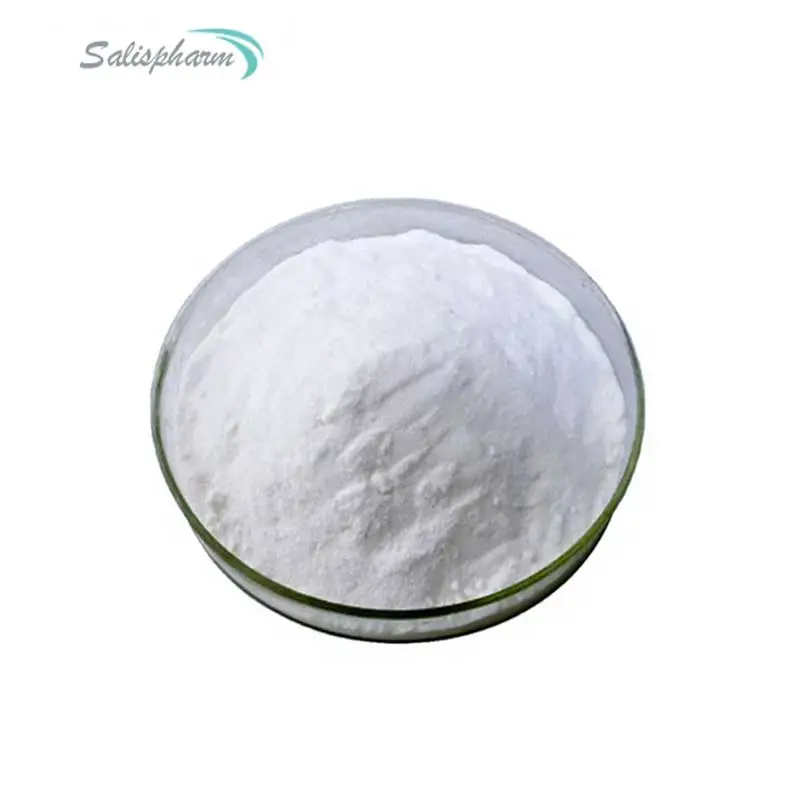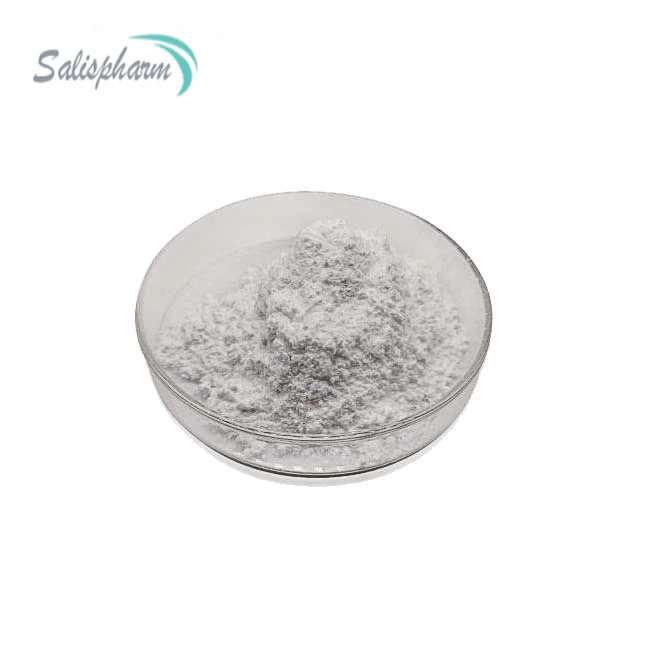Ketoprofen, a non-steroidal anti-inflammatory drug (NSAID), is a widely used medication known for its analgesic and anti-inflammatory properties. While it is available in various forms, such as tablets, capsules, and topical gels, ketoprofen powder has gained popularity as a versatile and convenient option for various applications. In this blog post, we will delve into the uses of ketoprofen powder, explore its potential benefits, and address important considerations regarding its safe and effective use.
Is Ketoprofen Powder Effective for Pain Relief?
Ketoprofen powder is commonly used for its analgesic properties, providing relief from various types of pain. As an NSAID, it works by inhibiting the production of prostaglandins, which are compounds that contribute to inflammation and pain in the body.
One of the primary uses of ketoprofen powder is in the management of musculoskeletal pain, such as back pain, joint pain, and arthritis-related discomfort. By reducing inflammation and relieving pain, ketoprofen powder can improve mobility and quality of life for individuals suffering from these conditions.
Additionally, ketoprofen powder may be beneficial for alleviating menstrual cramps and other forms of acute pain, such as headaches and toothaches. Its rapid absorption and onset of action make it a convenient option for quick pain relief.
It's important to note that while ketoprofen powder can be effective for pain relief, it should be used under the guidance of a healthcare professional, as NSAIDs can have potential side effects and may interact with other medications.

Can Ketoprofen Powder Help Reduce Inflammation?
One of the primary benefits of ketoprofen powder lies in its anti-inflammatory properties. By inhibiting the production of prostaglandins, ketoprofen can help reduce inflammation in various conditions, such as:
1. Arthritis: Ketoprofen powder can be effective in managing the inflammation associated with different types of arthritis, including rheumatoid arthritis, osteoarthritis, and gout.
2. Sports injuries: Athletes and individuals engaged in physical activities may benefit from using ketoprofen powder to alleviate inflammation caused by sprains, strains, or other injuries.
3. Inflammatory bowel diseases: Some studies have suggested that ketoprofen may be helpful in reducing inflammation in conditions like Crohn's disease and ulcerative colitis.
4. Dental procedures: Ketoprofen powder can be used to manage inflammation and pain after dental procedures, such as tooth extractions or root canal treatments.
The anti-inflammatory properties of ketoprofen powder make it a valuable tool in the management of various inflammatory conditions, helping to alleviate symptoms and promote healing.
What are the Potential Side Effects and Precautions with Ketoprofen Powder?
While ketoprofen powder can provide relief from pain and inflammation, it is important to be aware of potential side effects and precautions associated with its use.
Common side effects of ketoprofen powder may include:
1. Gastrointestinal issues: Like other NSAIDs, ketoprofen can cause stomach discomfort, nausea, and even ulcers or bleeding in some cases.
2. Kidney problems: Prolonged use or high doses of ketoprofen may affect kidney function, especially in individuals with pre-existing kidney issues.
3. Cardiovascular risks: There is a potential increased risk of heart attack or stroke with the use of NSAIDs, particularly in those with existing cardiovascular conditions.
4. Skin reactions: Some individuals may experience rashes, itching, or other skin reactions when using ketoprofen.
To minimize the risk of side effects, it is crucial to follow the recommended dosage and usage instructions provided by a healthcare professional. Additionally, individuals with certain medical conditions, such as kidney or liver problems, should use ketoprofen powder with caution and under close medical supervision.
It is also important to inform your healthcare provider about any other medications or supplements you are taking, as ketoprofen powder may interact with certain drugs, such as blood thinners, corticosteroids, and medications for high blood pressure or diabetes.
Ketoprofen powder is a versatile and effective option for managing pain and inflammation associated with various conditions. However, it is essential to use it under the guidance of a healthcare professional and follow the recommended dosage and usage instructions. By understanding its potential benefits and side effects, individuals can make informed decisions about incorporating ketoprofen powder into their treatment plans.
Remember, while ketoprofen powder can provide relief, it should not be considered a long-term solution for chronic conditions. A comprehensive approach that addresses the underlying causes and incorporates lifestyle modifications, physical therapy, and other appropriate treatments may be necessary for optimal management of pain and inflammation.
If you are also interested in this product and want to know more product details, or want to know about other related products, please feel free to contact iceyqiang@gmail.com.
References:
1. Rao, P., & Knaus, E. E. (2008). Evolution of nonsteroidal anti-inflammatory drugs (NSAIDs): cyclooxygenase (COX) inhibition and beyond. Journal of Pharmacy & Pharmaceutical Sciences, 11(2), 81s-110s.
2. Hamman, M. A., Thompson, G. A., & Gemmel, S. R. (1997). Comparative efficacy of non-steroidal anti-inflammatory drugs. The Journal of Rheumatology. Supplement, 47, 20-30.
3. Silverstein, F. E., Faich, G., Goldstein, J. L., Simon, L. S., Pincus, T., Whelton, A., ... & Geis, G. S. (2000). Gastrointestinal toxicity with celecoxib vs nonsteroidal anti-inflammatory drugs for osteoarthritis and rheumatoid arthritis: the CLASS study: A randomized controlled trial. JAMA, 284(10), 1247-1255.
4. Kearney, P. M., Baigent, C., Godwin, J., Halls, H., Emberson, J. R., & Patrono, C. (2006). Do selective cyclo-oxygenase-2 inhibitors and traditional non-steroidal anti-inflammatory drugs increase the risk of atherothrombosis? Meta-analysis of randomised trials. BMJ, 332(7553), 1302-1308.
5. Silverstein, F. E., Graham, D. Y., Senior, J. R., Davies, H. W., Struthers, B. J., Bittman, R. M., & Geis, G. S. (1995). Misoprostol reduces serious gastrointestinal complications in patients with rheumatoid arthritis receiving nonsteroidal anti-inflammatory drugs: A randomized, double-blind, placebo-controlled trial. Annals of Internal Medicine, 123(4), 241-249.
6. Brater, D. C. (1999). Effects of nonsteroidal anti-inflammatory drugs on renal function: focus on cyclooxygenase-2-selective inhibition. The American Journal of Medicine, 107(6), 65-70.
7. Derry, S., Moore, R. A., & Rabbie, R. (2012). Topical NSAIDs for chronic musculoskeletal pain in adults. Cochrane Database of Systematic Reviews, (9).
8. Zacher, J., Feldman, D., Gerli, R., Scott, D., Ikkos, D., Siculitan, S., ... & Elkayam, O. (2003). A comparison of the therapeutic efficacy and tolerability of etoricoxib and diclofenac in patients with osteoarthritis. Current Medical Research and Opinion, 19(8), 725-736.
9. Davies, N. M., & Skjodt, N. M. (1999). Clinical pharmacokinetics of ketoprofen and its ophthalmic administration. Clinical Pharmacokinetics, 37(3), 165-183.
10. Hadzija, B. W. (1992). Pharmacokinetics and bioavailability of ketoprofen in humans. Journal of Clinical Pharmacology, 32(12 Suppl), 40S-45S.







